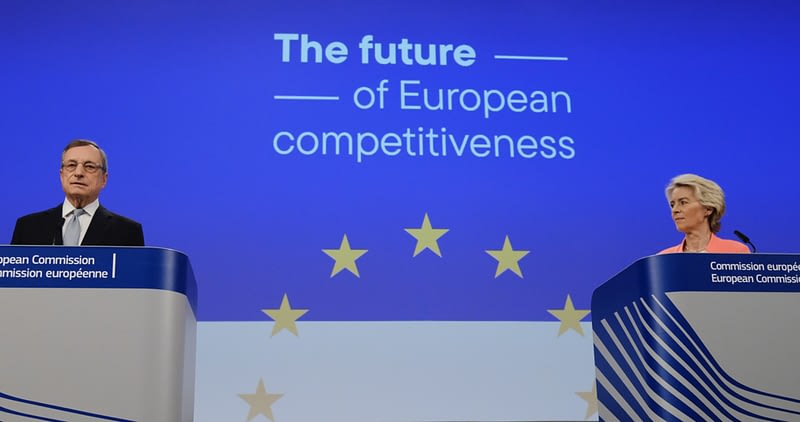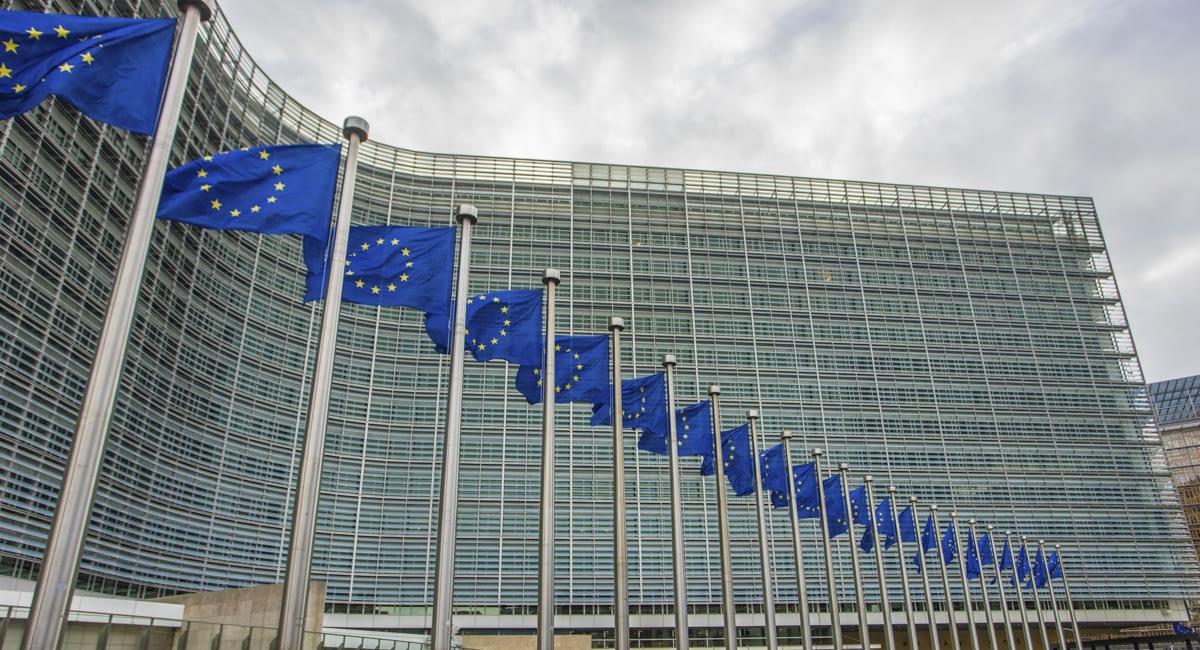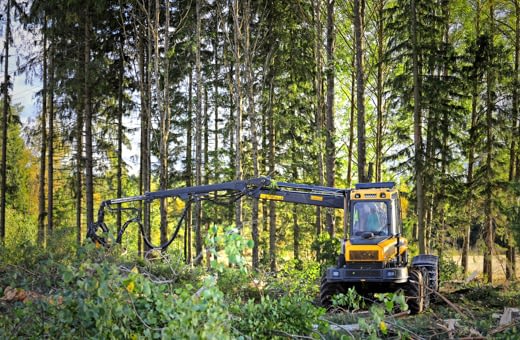On 9 September, Mario Draghi published his report on the Future of Europe’s Competitiveness. This comes as the second report, following Enrico Letta’s report on the future of the Single Market, commissioned by the European Commission and Council last year to guide the policy actions and resources of the Commission for the next five years.
The Finnish Forest Industries Federation (FFIF) is pleased that both Letta and Draghi recognize key areas of concern vital to Finland’s forest industry and broader bioeconomy. These reports acknowledge the critical role of innovation, sustainability, and fair competition in ensuring the EU’s competitiveness in the global market. FFIF supports the emphasis on research, energy decarbonization, and regulatory harmonization, all are essential for advancing the green transition and strengthening the forest sector’s contribution to a sustainable future.
Innovation and Research
Both reports highlight the importance of fostering public-private partnerships (PPPs) to drive innovation. Letta underscores the need to enhance mobility for researchers and professionals across sectors to accelerate innovation. Draghi similarly advocates for a doubling of EU funding for the European Research Council. FFIF fully supports these initiatives as enablers of advancing research, particularly in the bioeconomy—a strategy crucial for Finland’s forest industry. The success of Circular Bio-Based Europe (CBE) PPPs should continue under the next Framework Programme for Research and Innovation. Finland should ensure forest bioeconomy themes are prioritized under the next Framework Programme for Research and Innovation. Beyond the research phase, FFIF also stresses the need for increased EU funding for scaling, during the pilot and demonstration phases.
Energy and Decarbonisation
Both Draghi and Letta’s reports focus on addressing high EU energy costs and regulatory burdens as major barriers to industrial growth. Draghi’s report directly addresses the decarbonization challenge facing energy-intensive industries like the wood products, pulp, and paper industries. FFIF welcomes the proposal to simplify regulations and encourage clean energy investments, crucial for ensuring competitiveness while achieving green goals. FFIF is also encouraged by Draghi’s emphasis on the importance of clean technologies like carbon capture and storage (CCS) and the role of bioenergy in Europe’s green transition and Letta’s call for R&D funding for the material use of biomass.
Transportation and Market Access
Both Letta and Draghi emphasize the need for improved infrastructure and cross-border connectivity to support the Single Market. FFIF must point out the challenge for Finland’s sparsely populated regions, where existing EU rail and road plans may not directly address critical export routes. Public funding to develop charging infrastructure and ensure logistical efficiency for the Finnish export industry is essential.
Fair Competition
Letta and Draghi emphasize the need to address the fragmented regulatory landscape that distorts competition within the EU. A predictable, coherent framework that promotes sustainability and the circular bioeconomy is crucial for continued investment. Clear state aid rules are essential to foster a competitive internal market. Draghi warns that fragmented state aid practices risk distorting competition and harming the Single Market. FFIF supports calls for harmonized state aid guidelines to provide targeted support for decarbonization and innovation without undermining competition. A coordinated EU-wide approach is vital to avoid subsidy races to the detriment of smaller countries like Finland. Future frameworks should balance clean energy goals with industrial competitiveness. Draghi estimates Europe needs €800 billion annually to meet green and digital goals, including €450 billion for energy transition. EU initiatives like the Capital Markets Union and clean tech schemes are crucial for scaling bio-based innovation.
The Finnish Forest Industries’ role as a leader in the bioeconomy must be recognized and further integrated into future EU policies for a sustainable, competitive Europe. FFIF is ready to engage with EU stakeholders to ensure that the bioeconomy, particularly Finland’s forest industries, remains at the forefront of EU policy discussions and actions. By fostering innovation, ensuring fair competition, and scaling clean technologies, the EU can secure a prosperous, sustainable future that benefits all member states, including Finland.






